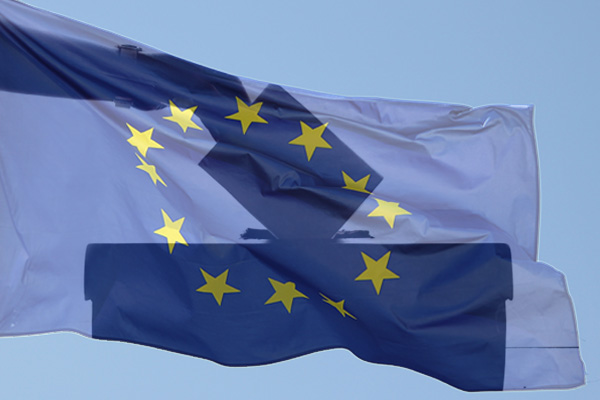Anti-EU populists made gains in European Parliament elections in the European Union countries in late May. In France, the Rassemblement National (RN, National Rally) party led by Marine Le Pen won the largest number of seats, outdoing the ruling La République En Marche! (LREM, the Republic on the Move! ) party founded by President Emmanuel Macron. So did the Brexit Party in Britain and the nativist right-wing populist Lega (League) party in Italy. Anti-EU populists are expected to win some 30% of the vote and increase the number of their seats by 34. Meanwhile, new pro-EU group, which includes LREM and other centrist liberal parties, and Greens are likely to boost the number of their seats by a combined 58.
In contrast, long-established center-left and center-right parties such as Britain’s Conservative Party and Germany’s Christian Democratic Union and Social Democratic Party suffered a substantial setback. Even with the setback of these pro-EU major parties, overall pro-EU parties including centrist liberal and green parties are expected to account for about 500 of the 751 European Parliament seats. The power balance between anti-EU and pro-EU seats in the European Parliament have not been reversed. The election results will fall short of leading European integration to collapse or face modification.
Political turmoil feared in EU countries
Rather, turmoil in EU countries is a serious matter of fear. Political chaos in each member country is affecting the EU. In this regard, the biggest matter of concern is Britain shaken by the Brexit controversy. Prior to the European Parliament elections, British Prime Minister Theresa May announced she would resign as leader of the ruling Conservative Party on June 7. Former Foreign Secretary Boris Johnson, a hard Brexit supporter, is thought to be the leading candidate to succeed May. In European Parliament elections, the Brexit Party’s largest share of the vote at 32% was followed by 20% for the pro-remain Liberal Democratic Party, about 10% for the Labor Party that splits into pro-remain and pro-Brexit factions and about 10% for the pro-remain Green Party. The share for the Conservative Party containing both hard and soft Brexit supporters plunged to 9% from 23% in the previous elections.
Suffering the most serious setback in France was the Republican Party that had represented conservatives in the past. Its share of the vote slipped below 10%, reaffirming the competition between the two biggest parties – the Le Pen-led party and the LREM – realized in the presidential election two years ago. Italy’s League party, though having formed a coalition government with the left-wing populist Five Star Movement, is now the country’s most popular political party. Italy under the coalition government has added to the friction with Germany, France and other major EU countries by participating in China’s Belt and Road Initiative and taking a strict policy against refugees.
Cost of democracy
Populism is most simply defined as anti-elitism. Politicians and EU bureaucrats who seem busy with promoting European integration while brushing off the poor-rich gap and ordinary people’s lives are seen by most people as elites. An argument that anti-EU populist parties represent ordinary people amounts to a democratic logic. In these circumstances, European countries have been on the brink of political division.
I doubt if the debate over the Brexit in Britain since 2016 has been sound. Brexit supporters’ rhetoric has represented a populist policy of taking every means to take power. Beneath the debate might have been a power struggle to replace the government. The Brexit has been used as a subject of political debate. The Brexit debate has been transformed into a tool of political struggle. The situation indicates a cost of democracy. The key point is whether the cost should be viewed as a necessary evil or a decline of democracy.
Hirotaka Watanabe is a professor at Teikyo University. He is specialized in European politics.


